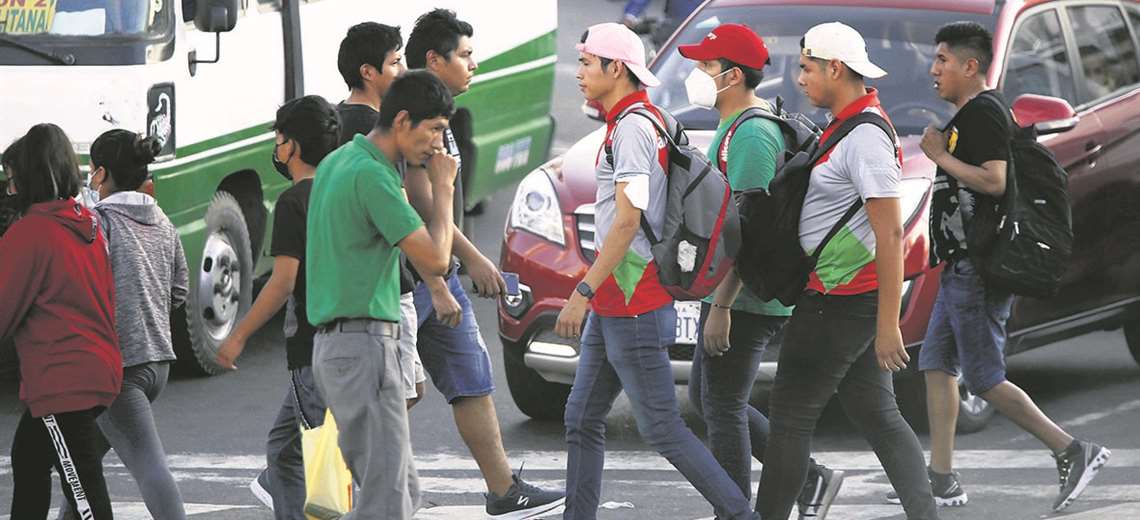While the authorities open the debate on loosening or not the use of the chinstrap in open spaces, the population relaxes that protection without the need for regulations. This Monday the Municipal Emergency Committee (COEM) of the capital Santa Cruz approved a new resolution in which it maintains the mandatory use of the mask, but requires the Departmental Health Service (Headquarters) to adjust vaccination strategies to achieve 80% coverage that conditions the Ministry of Health to make the measure more flexible.
“We are sending two letters, one to Headquarters and another to the Ministry of Health so that they can help us in the action plan they have on the vaccination plan. We are already with 67%, but we need to reach the maximum point, which is 80%,” said interim mayor Gabriela Garzón.
The COEM resolution requires Headquarters to expand and increase mass vaccination and be more effective in reaching immunized people. Similarly, it indicates that the diagnostic points will continue to attend normally and will be expanded if necessary.
Meanwhile, the behavior of citizens is far from the debate of the authorities. In the markets and on public roads, the use of the protective mask is scarce, since only some use it and others put it on incorrectly, andThat is to say, they do not cover their mouths or noses with the chinstrap. The requirement is met in its entirety only by those waiting to enter public offices, banks, companies and other offices, where the use of the chinstrap is mandatory.
In public transport it is also difficult to respect biosafety, as there are even drivers who do not carry chinstrap and it is not a requirement for passengers who They go up without a care.
In the markets, few vendors comply with this protection measure, while customers remove the mask when making purchases or place it on their chin.
The possibility of making its use more flexible in public spaces generates divided opinions among people. Verónica Zabala is against this possibility, since she considers that this would lead to a greater relaxation, which would bring forward agreat wave of infections. Ensures that she is one of the peoplenas who has made the chinstrap one more piece of clothing, so she does not go out without the mask and in her monthly expense budget includes the purchase of two boxes of chinstraps.
Brenda Suárez has a contrary opinion, assuring that in the streets there are few who use it or put it on incorrectly. “They think they’re protecting themselves, but if you put it on and take it off to talk, you’re not doing it,” she says. She is in favor of people getting vaccinated to be protected against the virus and comply with hand disinfection and avoid crowds. She has three doses and hopes to take the fourth soon to be calmer.
The epidemiological situation
The Ministry of Health and the National Strategic Council for Health Emergency defined that no region may flemake biosafety measures more flexible if they do not meet certain requirements, such as having 80% coverage with the two-dose schedule vaccination, 50% with the third-dose schedule, and when the early warning index levels are at initial warning risk.
The Ministry of Health reported this Monday that the cases of Covid-19 in the country continue to decrease and in the last week there was a decrease of 35% compared to the previous seven days.
The Minister of Health, Jeyson Auza, pointed out that in the previous week 397 cases were registered, which adds up to 905,428 in the more than two years of pandemic. Five departments have a decrease in the contagion curve, one registers a stationary behavior and three regions, slight increases. The fatality rate is 0.7%.








